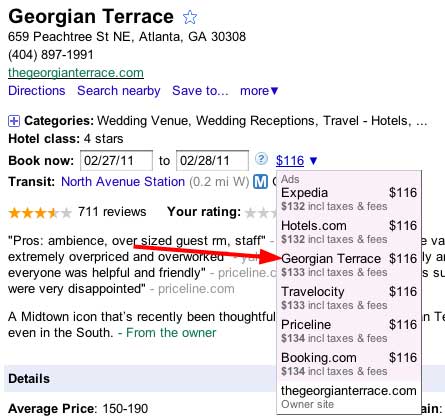As many of you may know, Python is one of the official languages here at Google. Guido van Rossum, the creator of Python, is a Googler too—so naturally we’re thrilled to be supporting PyCon 2011 USA, the largest annual gathering for the community using and developing the open-source Python programming language. The PyCon conference days will be March 11th to the 13th, preceded by two tutorial days, March 9th and 10th. For those of you with coding in mind, the Sprints run afterwards from March 14th-17th. All-in-all that’s nine days of Python nirvana!!
In addition to having many Googlers in attendance, some of us will be presenting as well.
• On Wednesday, March 9th at 2 PM, I will be leading a Google App Engine tutorial with fellow teammate Ikai Lan. Tutorials have gotten so popular at PyCon, they’ve now been expanded into a two-day affair!
• On Friday the 11th, the very first day of sessions, App Engine engineer Brett Slatkin will kick things off with his talk, “Creating Complex Data Pipelines in the Cloud” using the new App Engine Pipeline API at 10:25 AM.
• After lunch on Friday, I’ll take my Google hat off momentarily to discuss Python 3 in my talk subtitled “The Next Generation is Here Already” at 1:35 PM. It is mostly a repeat of the well-received talk I gave last year but with updates. The main point is to introduce folks to the next version of the language and discuss how its backwards-incompatibility will affect users, when users should port their apps to Python 3, what the differences from Python 2 are, etc. My job is to calm and soothe, dispelling any FUD (fear, uncertainty, doubt) about Python 3.
• On Saturday morning at 9:25 AM, Python creator, BDFL, and App Engine engineer Guido van Rossum will do his annual Q&A session for all conference attendees in a fireside chat session.
• Later Saturday morning at 11:05 AM, I’m looking forward to speaking about “Running Django Apps on Google App Engine.” This is exciting for me, not only because it’s a relatively new topic, but it represents a major change for Django developers: being able to write Django apps that run on NoSQL or non-relational databases — it’s been only RDBMSs all this time. Furthermore, with Django-nonrel, you can move Django projects/apps between traditional hosting and App Engine, helping to break that “vendor lock-in” issue that many have had concerns about when hosting apps in the cloud. A good part of my talk does focus on porting apps from App Engine to Django however.
• Right after my talk, at 11:45 AM comes another famous Googler, author of Python in a Nutshell, co-editor of the Python Cookbook, and a long-time member of the Python community, Alex Martelli. Alex’s invited talk on “API Design anti-patterns” will be insightful and cerebral, sure to cause many future hallway discussions.
• Late Saturday afternoon at 4:15 PM, Google engineer Augie Fackler will deliver his talk entitled, “HTTP in Python: which library for what task?” There are many libraries that do HTTP. Which ones should you use and when? What are the benefits and tradeoffs?
• Finally, several members of the Google App Engine team, App Engine forum gurus, and experienced App Engine users are attending PyCon this year. I’m hoping to establish an OpenSpace session one of the conference evenings where we can meet other users, chat about best practices, and do some informal Q&A letting people ask anything they want (except “When will you support newer versions of Python?”). 🙂
You can find the entire PyCon schedule online. It’s interactive if you log-in, allowing you to bookmark sessions you’re interested in attending. This will be PyCon’s biggest year yet, so hopefully you can join us in Atlanta next week! Keep an eye out on the PyCon blog to get the latest news, and be sure to follow the Twitter hashtag (#pycon).
We invite you to join Google team members at all our talks, plus stop by our booth to meet our technical staff as they demo select developer tools and APIs. We’ll have handouts there and also encourage you to try a short coding puzzle for a prize!



